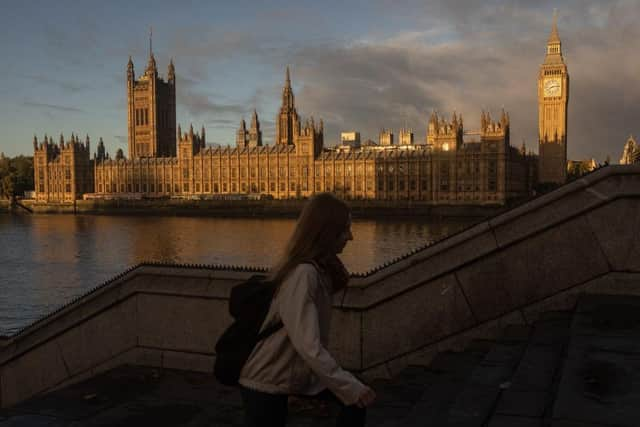Social Attitudes Survey underlines strong support for devolution in Scotland, not independence - John McLellan
and live on Freeview channel 276
Forget about the epidemic of drug deaths, allowing men to identify as women without a medical diagnosis, falling NHS standards or dodgy deals for unbuilt ferries. God bless the Scottish Government, and all the £4m worth of political advisers, spin doctors and public affairs types who sail in her.
That looks like money well spent from an SNP perspective, with the SSAS claiming that two-thirds of people trust the Scottish Government to work in Scotland’s best interests, and that three-quarters believe the Scottish Government should have the most influence over the way Scotland is run.
Advertisement
Hide AdAdvertisement
Hide AdBut far from being an endorsement of the current Nationalist administration or the desirability of independence, it looks much more like a validation of devolution, reflecting what 74 per cent of people voted for in the 1997 referendum.


“Grim reading for No voters” said the Evening News headline this week. Perhaps for those who voted No in 1997, but it is glaringly obvious that those who backed No in 2014 did not do so to abolish devolution. Quite the contrary, because the process of strengthening devolution was well under way before the vote.
The Scottish Parliament gives Scotland a stronger voice in the UK, say 64 per cent of the population, which is precisely what the pro-devolutionists argued it would do, and 63 per cent say it gives ordinary people more say in how the country is governed, which was the whole point of the exercise.
The SSAS is not another political opinion poll or an endorsement of a political goal, but a snapshot of views about Scottish institutions now, and if anything it indicates how dangerous it would be to start unpicking the devolution settlement.
Advertisement
Hide AdAdvertisement
Hide AdBut it also demonstrates just how hard the UK Government must work to get any credit for the benefits it brings, like the arrival of pensioners’ winter fuel payments this week with no reference to who is paying it. That’s not a trick the SNP would miss.
Given the UK Government must balance the interests of its component parts, it’s not surprising a majority think it does not always put Scotland’s interests first, even though the annual spending settlement shows Scotland gets a very good deal indeed. How would Edinburgh people respond if they were asked about the Scottish Government’s attitude towards the city, when its deal is anything but?
There is no point denying the Nationalists’ repeated success at national elections, or that 40 per cent of the population has regularly endorsed them as a party which stands up for Scotland, yet the goal of independence is no closer to reality despite Westminster’s recent tribulations.
Rather than crowing, the SNP should ask why 34 per cent do not think the Scottish Government works in Scotland’s best interests most of the time, when that is its primary function.
Advertisement
Hide AdAdvertisement
Hide AdNo matter that the SNP spent years opposing devolution as a Unionist trap, devolution has instead provided a feather bed for incompetence because the SNP has been able to use Westminster as a shield to deflect responsibility, taking the credit for everything and the blame for nothing.
Comment Guidelines
National World encourages reader discussion on our stories. User feedback, insights and back-and-forth exchanges add a rich layer of context to reporting. Please review our Community Guidelines before commenting.